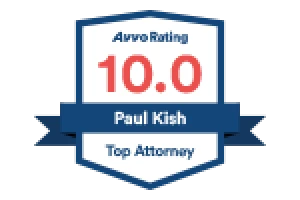- Free Consultation: (404) 207-1338 Tap Here to Call Us
Securities Fraud in Atlanta and Elsewhere: Do Not “make” a Material False Statement
As a criminal defense lawyer who handles matters in Atlanta and elsewhere, from time to time I represent individuals and companies who are investigated, or sometimes even prosecuted, for the very esoteric crime of “securities fraud.” Reduced to the basics, the securities laws and regulations are well-intentioned rules designed to protect those fortunate to have extra money to put into the stock market or other investments. “Securities fraud” is when some person involved in the securities field engages in conduct prohibited by that the Securities and Exchange Commission (the “SEC”) or Congress. So, the key to defending against an allegation of securities fraud is to deeply dive into the words that describe what conduct is, or is not, illegal in the securities field. Yesterday, our friends in the United States Supreme Court issued the decision in Lorenzo v. SEC. The case turned in part on the meaning of the law that makes it a crime for a person to “…make any untrue statement of a material fact” in connection with a securities sale or purchase. So, what does it mean to “make” a statement? That is one of the questions the High Court answered yesterday.
Francis Lorenzo was the head of investment banking at an SEC-registered firm. He regularly sent out emails to potential investors, suggesting various stocks or other investments. Now, here’s the key. The information that Mr. Lorenzo put into the emails to possible clients came from Lorenzo’s boss. In one set of emails, Mr. L. told investors that a company had over $10 million in assets, and therefore was a good place to invest. However, Mr. L. knew for a fact that his boss was telling a plain old lie when saying that this company had $10 million. Lorenzo knew that the company had recently disclosed that its total assets were more in the $400,000 range. That is a big difference, meaning that if the statement was “untrue” it was also “material.” The question from yesterday’s case was whether Mr. Lorenzo was the person to “make” the statement when he merely passed along or republished a false claim from his boss.
An earlier Supreme Court decision called Janus Capital Group, Inc. v. First Derivative Traders said that a person “makes” an untrue statement if he or she has “ultimate authority over the statement, including its content and whether and how to communicate it.” In Janus, the Court said a person was not liable under the securities laws if he was an investment advisor who merely participated in the drafting of a false statement that was later “made” by someone else. So, the lawyers for our Mr. Lorenzo sensibly claimed that the rule from Janus should have applied to Mr. L., seeing that it was the boss who controlled the “content” of the statement.
Not so fast, said the 6 justices in the majority of yesterday’s opinion. The bottom line is that the majority concluded that disseminating false or misleading statements with intent to defraud can be covered by other securities fraud provisions, even if the person disseminating the information did not actually “make” the statement.
Client sometimes come to me at the beginning of a securities fraud investigation. Other times, they have been under investigation for quite some time and fear a potential criminal prosecution. Still other clients only come to see me after their securities attorneys failed to avoid an indictment. Whatever stage a client is in when he or she is being investigated for potential securities fraud, they need to understand that defending such matters is more than merely knowing the meaning of the word “make” in the context of the securities laws and regulations. The attorney also needs practical knowledge at early phases of an investigation, meaning a pragmatic understanding of what cases are the type that federal prosecutors are likely to bring. In later stages, the client more and more needs an attorney who has actually stood up in court to fight against such matters. One of the biggest mistakes I see from time to time is when clients continue to rely on their pure “securities lawyer” to defend them, even though the matter has morphed into a criminal investigation and/or prosecution. Knowing the intricacies of the securities law is just the beginning of defending such a matter in federal court.









